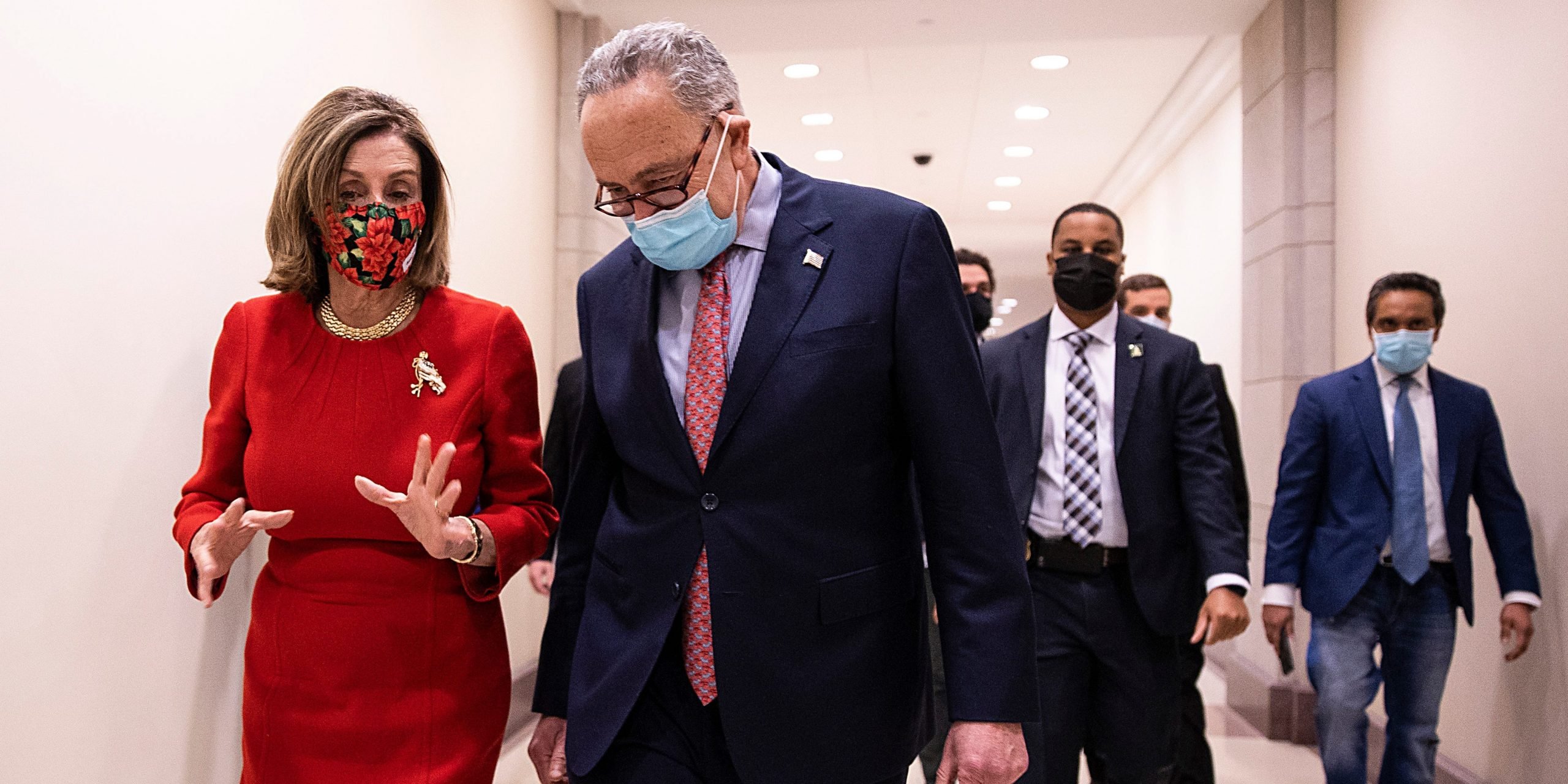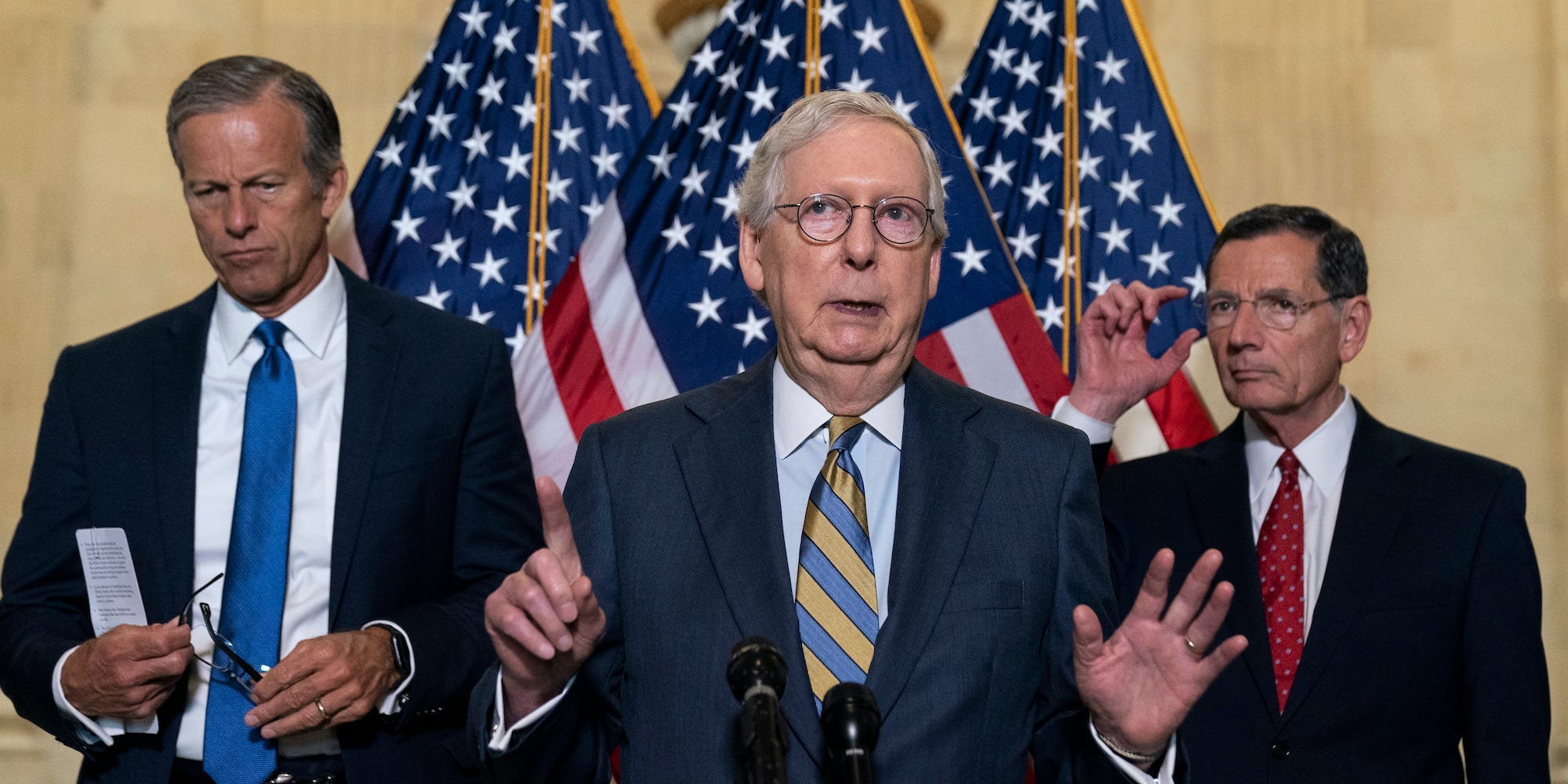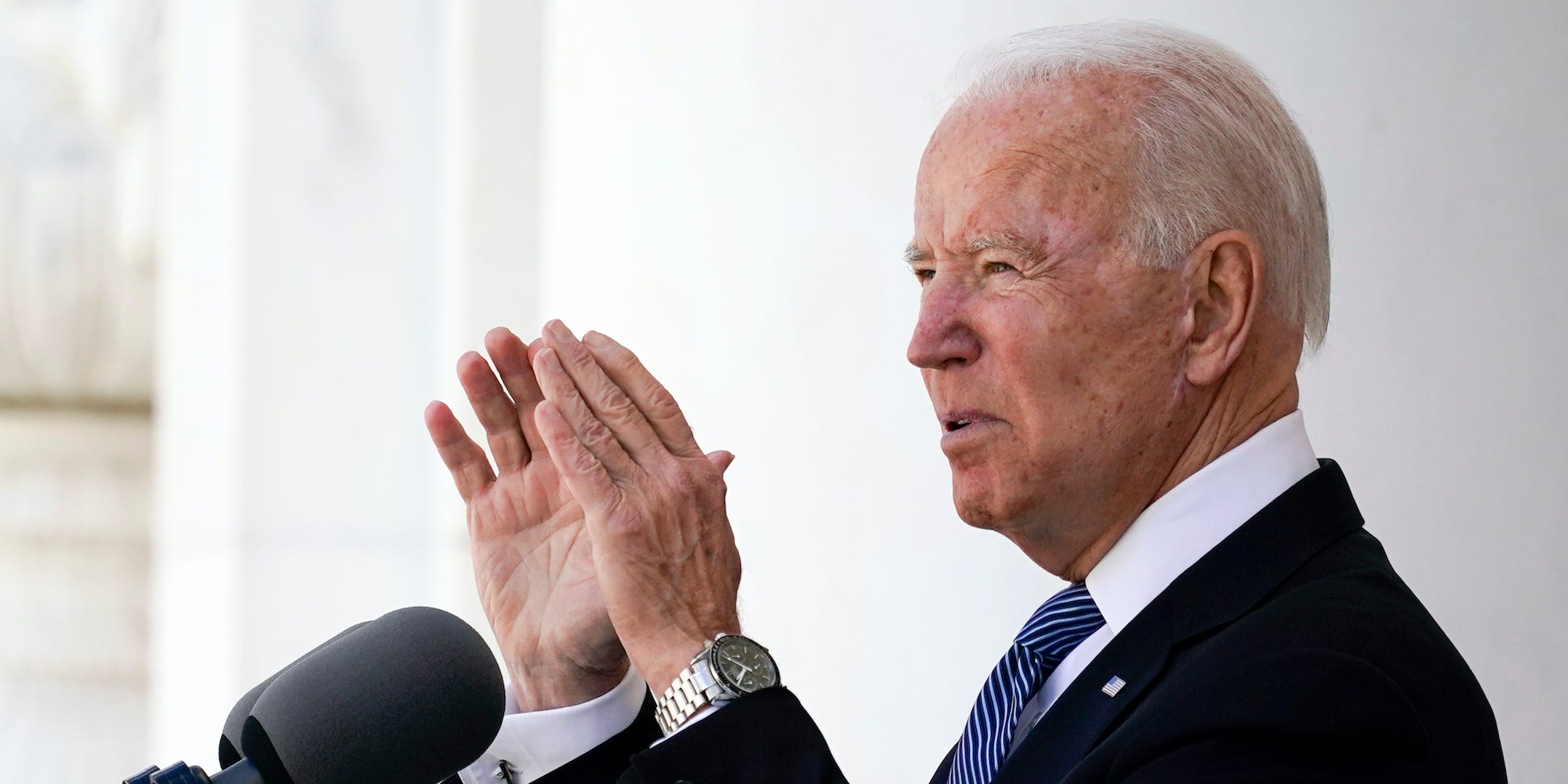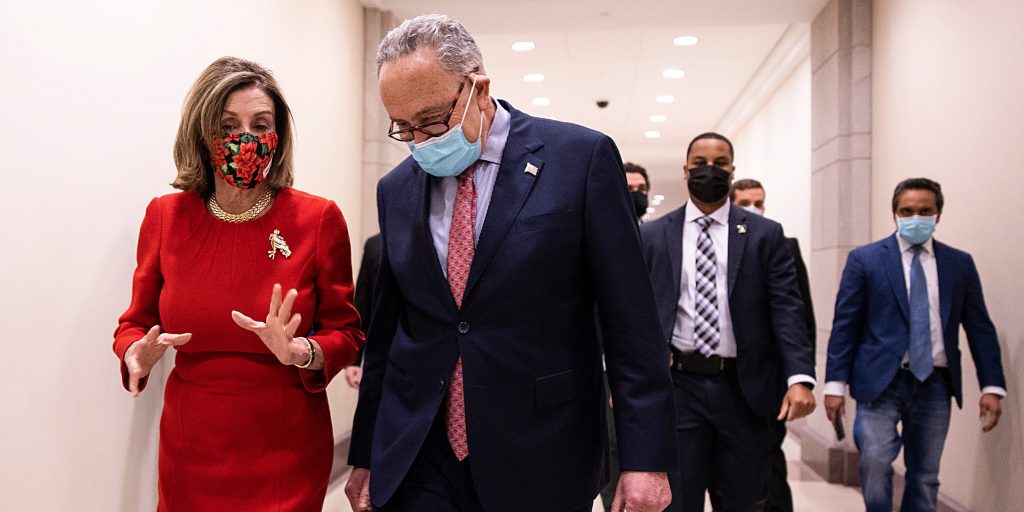
Tasos Katopodis/Getty Images
- Congress is struggling to pass Biden's economic agenda, and even faces a default and government shutdown.
- Increasing turmoil among Democrats threatens to leave them with little to show from his first year in office.
- They're squabbling over differences about the size and scope of their social spending plans.
- See more stories on Insider's business page.
The fate of President Joe Biden's economic agenda hangs in the balance as Congress struggles to clear several deadlines.
The stakes are massive: Democrats need to keep the government funded and to avert a potentially devastating federal default, while also keeping their promises to pass over $4 trillion in fresh spending on healthcare, climate initiatives, infrastructure, and childcare.
Congressional Democrats are relying on their slim but potent majorities to usher through an overhaul of the American economy using a special tactic known as reconciliation to skirt unified GOP opposition. They want to expand Medicare and Medicaid, ensure families can access and afford childcare, add four years to public education with universal Pre-K and tuition-free community college, and renew monthly cash payments to families.
Or at least, most of them want to. Two moderate senators are uneasy with the magnitude of the proposed changes. Sens. Joe Manchin of West Virginia and Kyrsten Sinema of Arizona are demanding that the $3.5 trillion social spending bill be trimmed down. Up to 10 moderates in the House are also threatening to let the infrastructure bill fail rather than back tax hikes, Politico reported.
Manchin has called for a "pause," angering progressives pushing to tackle inequality and reverse safety-net cuts dating back to the Reagan-era of the 1980s. Moderates' resistance to such sweeping changes – and the ensuing tax hikes to finance them – reflect big internal divides over reversing the Reagan legacy of limited government.
Democrats are scrambling. They're seeking to have it ready by September 27, a deadline imposed by Speaker Nancy Pelosi so they could approve in tandem a separate bipartisan infrastructure bill focused on roads and bridges.
So the moderates are threatening to tank progressives' larger bill for being too radical, and the progressives are threatening to spike the roads-and-bridges deal in a clash that resembles mutually assured destruction. The increasing turmoil threatens to sink both measures. The worst-case scenario would leave Democrats largely empty-handed as they attempt to hold onto Congress in the 2022 midterms with only a $2 trillion emergency spending package from March to showcase - a major achievement, though one geared at propping up the economy and not transforming it like Biden promised.
"There's significant danger," one Democratic aide granted anonymity to speak candidly told Insider. "I think when you get to the point when people are saying they'll derail the president's agenda if they don't get what they want, that's dangerous for all of us."
'The biggest mash-up we've ever had since I've been here'
Sen. Tim Kaine of Virginia told Insider that Manchin appeared to be alone in his call to slow down proceedings. "I really haven't heard people say it should be paused, so that was kind of out of the blue," he said, adding that he's spoken with some Senate Democrats up for reelection in 2022 and they want to secure the passage of social spending immediately.
Meanwhile, House progressives are doubling down in their determination to sink the bipartisan bill if the Senate hasn't approved the social legislation by then. "It will not pass," Rep. Pramila Jayapal of Washington, chair of the Congressional Progressive Caucus, told reporters on Monday evening.
"I will not vote for an infrastructure bill unless we have reconciliation ready to go," Rep. Alexandria Ocasio-Cortez of New York told reporters as well, predicting dozens of progressive lawmakers are ready to vote no alongside her.
Democrats are starting to acknowledge that the pile-up at their door may derail swaths of their priorities in the next few weeks. "I've been here for cliffs and crises and wars, and this is going to be the biggest mash-up we've ever had since I've been here - with the debt limit, with a government shutdown, with reconciliation, and with infrastructure," Rep. Peter DeFazio of Oregon, chair of the House Transportation and Infrastructure Committee and member of Congress since 1987, told reporters on Monday. "And I have no idea how it all works out."
Another Democratic aide granted anonymity so they could speak candidly argued the party's drive to pass the social spending bill was always going to be difficult since it surpasses even the Affordable Care Act in its scope and complexity. But they insisted Democrats recognize the stakes as they scramble to preserve their power. "I think all members know the party's future depends on getting this bill done," the aide said.
The perilous road ahead

Alex Brandon/AP
Just as Democrats are struggling to agree on their priorities, Senate Republicans led by Mitch McConnell are refusing to back a short-term government funding bill, which Democrats have coupled with a renewal of the nation's ability to pay its bills for two years, known as the debt ceiling. GOP senators on Monday lined up behind the Kentucky Republican, insisting Democrats bear full responsibility.
In the short term, top Democrats will have to embark on a last-minute blitz to ensure the government's doors remain open past September 30 and the nation's borrowing caps are lifted.
Experts say the effects of a federal default could ripple from Wall Street onto millions of American households and jeopardize the economic recovery from the pandemic.
"People would lose incomes, jobs, retirement savings," Jason Furman, a former top Obama administration economist and now a Harvard professor, said in an interview. "I think it's risking disaster."
"We've never before seen a country that was perfectly able to pay its debt back just choose to default," Furman said, adding he believed Republican and Democrats must cooperate to raise the debt ceiling.
Democrats are frustrated with the GOP, particularly McConnell, for reversing their position on the debt ceiling after raising it three times during the Trump administration. Congress also accrued nearly $8 trillion in debt on the back of bipartisan spending deals and coronavirus relief packages under President Donald Trump. Republicans enacted a $2 trillion tax cut on their own as well.
"[McConnell] wants Biden to fail. It's what he does," Sen. Sherrod Brown, chair of the Senate Banking Committee, told Insider. "We should be doing what ever it takes to run the government and build back better."
The fight over government funding and the debt ceiling could spill into next week's infrastructure vote in the House if lawmakers don't defuse the standoff by then, further delaying the passage of spending bills many Democrats view as pivotal ahead of next year's midterms.
Other parts of Biden priorities are languishing in Congress

AP Photo/Alex Brandon
A top Senate official rebuffed Democratic efforts to merge immigration reform into their reconciliation package, all but slamming the door shut on a pathway to citizenship for millions of unauthorized immigrants. Prescription drug reform, another top priority, has also struggled to garner support among Democrats at the committee level.
Issues like police reform and voting rights are also languishing in Congress due to Republican opposition that's made it impossible for Democratic measures to garner 60 votes and break the filibuster.
The mounting upheaval is starting the clock for Democrats to resolve their differences quickly. "Basically, everything's sort of dependent what happens in the next 48 hours," Rep. John Yarmuth of Kentucky, chair of the House Budget Committee, said on Monday evening.
Yarmuth added that his experience trying to get Democrats on the same page over the last four months was akin to "herding cats."
"My message to all of them has been: Posture all you want on all your priorities. You should. That's appropriate. And fight for what you believe in," he told reporters. "But ultimately you're all gonna vote for this, because you're not gonna vote against childcare, you're not gonna vote against paid family leave ... and by the way, have you met Nancy?"

